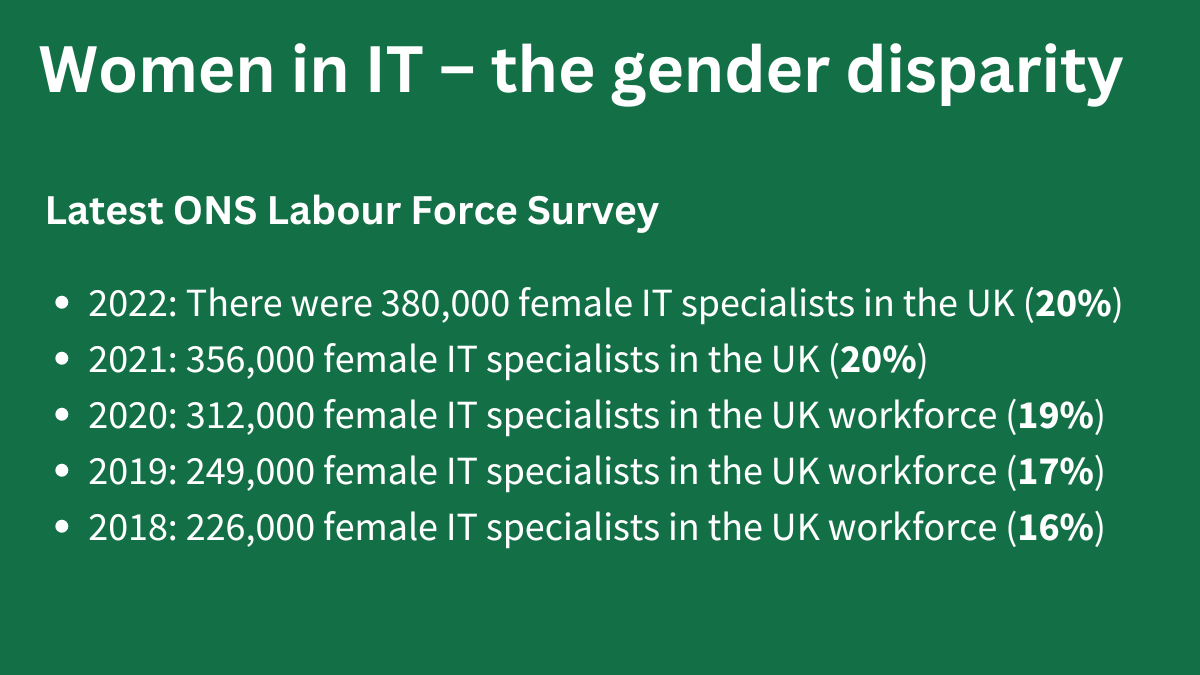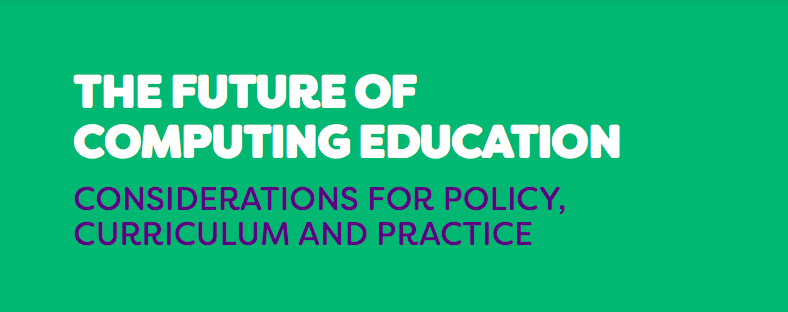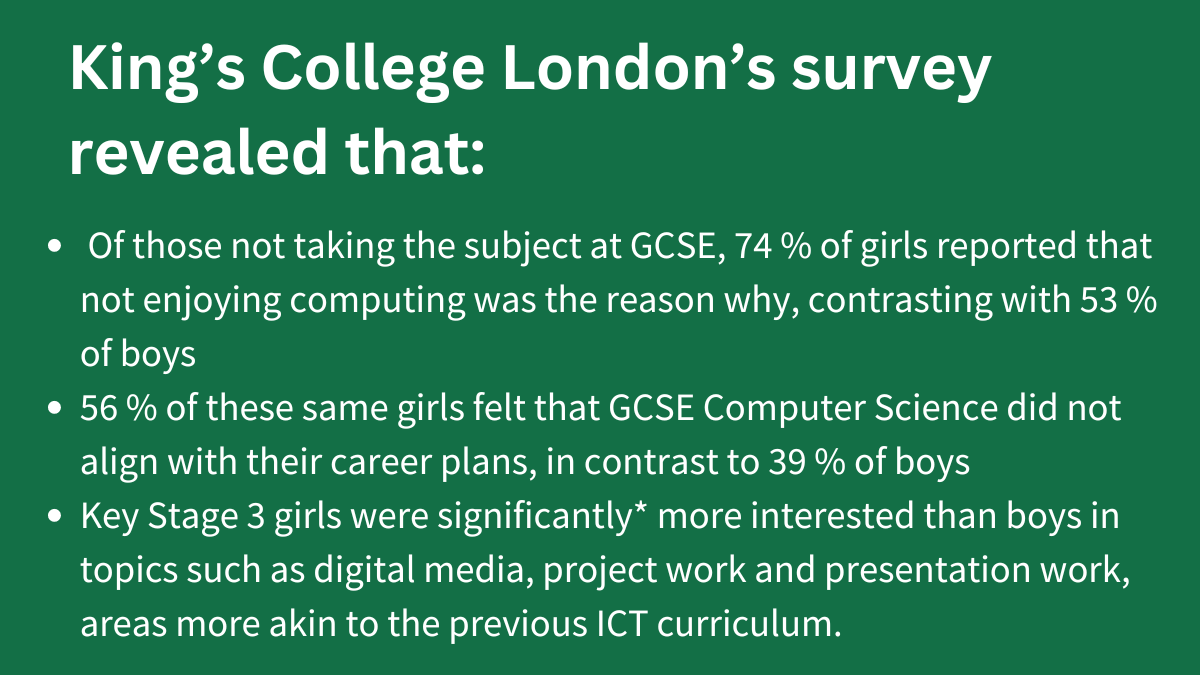The BCS argues that policy focus on certain areas such as the gender gap can close the aspiration enequalities for individuals and help UK companies compete on the world stage
The BCS, The Chartered Institute of IT, has sent a letter to Peter Kyle MP the new Secretary of State for Science, Innovation and Technology, which highlighted a huge gender gap with more than 500,000 women ‘missing’ from the UK’s IT sector.
It follows BCS’s publication of its manifesto on 5 July, which laid out three key priorities to the Labour Government. One of which was that: Every child and adult must have access to a world class computing and digital literacy education with qualifications that reflect this.
What the letter said
In his letter (dated Thursday 11 July), Rashik Parmar MBE, CEO of BCS, congratulated Peter Kyle MP on being appointed to lead the government’s Department for Science, Innovation and Technology and said the professional body for computing was ready to support his mission to transform public services and build trust in the power of AI and emerging technologies but also asked to him to address deep concerns about IT education and the disparity of females in IT professions.
His letter listed BCS membership community’s recommendations for government including:

“I ask you to support Chartered status for technology professionals, setting the same expectations of competence and ethics as regulated fields like accountancy and medicine,” said Palmer. “As well as individuals, organisations themselves should publish their ethical policies for AI use, supported by independent audits, safe sandboxes and transparent governance.
“To strengthen Critical National Infrastructure, we ask you to support a mandatory Cybersecurity Code of Practice and to require company boards to include a member accountable for cybersecurity.
Prioritise digital literacy in schools
“Then to secure the future, we need to prioritise digital literacy in schools and make tech careers appeal to a far broader group of people. I know, like me you will be aghast that over 500,000 women are ‘missing’ from the UK’s technology sector, who should be there, if representation was equal to other professions (ONS data).
“If people who make decisions about technology are focused on ethics, education, and equity, it can be the key to closing the aspiration gap and realising dreams. I look forward to meeting you to discuss these issues which are critical to the UK’s role as a leader on the world stage.”
Kings College report: Number of girls taking GCSE Computing plummets

On 27 June King’s College London published its The Future of Computing Education considerations for policy, curriculum and practice, which found the number of girls in England taking computing GCSE has plummeted by half in the past eight years.
The report found the sharp decline in female participation follows government qualification changes that led to the scrapping of the old information communication technology (ICT) GCSE and its replacement with a new computer science GCSE.
Gender disparities remain a pressing issue, with girls underrepresented, perpetuating gender imbalance in the digital domain and raising social justice concerns
“In today’s digitally driven world, acquiring digital skills has become necessary for active participation in modern society,” the report said. “As England aims to establish itself as a ‘science and technology superpower’, the nurturing of digital skills amongst young people is crucial not only for personal empowerment but also for bolstering the nation’s competitiveness in the global knowledge economy.
“Despite these ambitions, concerns persist regarding the low uptake of computing education. Gender disparities remain a pressing issue, with girls underrepresented, perpetuating gender imbalance in the digital domain and raising social justice concerns.”
Interviews with teachers and school senior leaders revealed dissatisfaction with the GCSE Computer Science specification the report said.

“We found that at Key Stage 3 girls were significantly more interested than boys in topics such as digital media, project work and presentation work, areas more akin to the previous ICT curriculum. Perceived relative difficulty in computing remains an issue for teachers, young people and their parents and carers.”
AIT’s work to encourage the next generation of information technologists
All of these findings back the work that AIT is doing with its educational resources in primary schools which aim to inspire and motivate young students to gain experience in tech activities with special attention to the inclusion of girls.
This was highlighted in AIT Chairman, John Carrington’s annual Barney Gibbens Memorial Lecture in June at the Worshipful Company of Information Technologists.
Carrington argued that: “IT is a vital ingredient to the UK’s economic growth and wellbeing. There is a shortage of people entering the IT sector in the UK. One source of the shortage is the fall in the numbers of students pursuing computing in schools. The decline is more marked for females.”
He examined the evidence for the shortage, challenges in teaching in primary schools, especially in exciting interest in computing/IT as a potential career, and what AIT, BCS, WCIT, and the wider Livery and charities are doing to help.
Our Mission to inspire young students
Our mission statement from when we were established as a charity in 2015 is: Capturing the Past and Inspiring the Future and of the latter’s three aims one is to: Inspire young students at schools and colleges to understand the opportunities and aspire to a career in IT.
We believe encouraging youngsters to embrace their technology and digital skills could lead them to great careers and it supports the previous Government’s Careers Strategy which states that it wants ‘every person, no matter what their background and no matter where they are from, to be able to build a rewarding career’.
In developing these resources, we have sought advice from teachers by working with a dozens of schools, the Computing at School network and the Worshipful Company of Information Technologists (WCIT). We have also demonstrated the lessons at three careers fairs and have received positive feedback from teachers and pupils.
Our lesson plans and school resources number 38 now with the publication this week of eight activities for Key Stage 1 students including Beebot Adventure that instructs pupils on how to use algorithms to code a program as well as to recognise what algorithms and? coding are all about.
Ama Frimpong and Sir Robin Saxby primary school visit
Earlier in July, as part of AIT’s Educational offer, Sir Robin Saxby, the first CEO of Arm, was joined by Ama Frimpong, The Institute of Engineering and Technology’s Young Woman in Engineering 2022, led an assembly at Little Thurrock Primary School in Essex where they talked about STEAM, career opportunities, finding your passion and engaging more females in the industry.
Schools’ Competitions
AIT has organised three schools’ competitions over the past 18 months including our recent oral history competition, launched in the spring. This was an opportunity for primary school students to mimic the job we do at AIT, which is to collect the personal histories of people who have and are doing positive things in the world of technology so other people can learn about the industry and share this information.
Related content
Diversity and Opportunity – An Enigma for Tech
Donate to AIT’s Educational Offer
We are reliant on kind Patrons and donations to achieve our charitable objectives and if any of the following are important to you then please get in touch and discuss how a donation would be used and how we might work together to:
Ensure that young people learn about and have fun with computers and the internet; use them safely and happily; and understand the opportunities of a professional career to which they can aspire without regard to gender, class and ethnic origins
Continually develop the archive as a resource to support universities and students studying the industry and its recent history alongside other important technological, economic and social influences on our lives, in order to manage it better in future.
Make it general knowledge how tech has been used to improve life, safety and prosperity; that the UK is a leader in the global industry on which our economic future is critically dependent.
In all instances Contact our Chair of Trustees for an informal chat about becoming a Patron of AIT.
